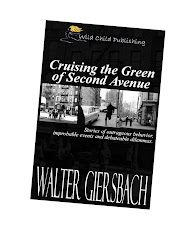Thing
was, our family traveled every summer in the 1940s, driving throughout the
Northwest or cross country in our ’39 Buick (later a '48 Cadillac).
None of the my classmates had ever been farther than Idaho or
Washington.
We
eagerly anticipated summer vacation as the family plotted a route to Glacier
National Park (where we had a snowball fight on the Fourth of July), or the
Grand Canyon (where my kid brother and I skipped along the wall a mile above
the canyon floor). And because Dad was
in love with the American Way of Life we hit every state capitol on the way.
We
didn’t have money for motels, but camping in parks was virtually free. My folks had invested in Army surplus wooden
cots from World War II (cost: one dollar each), down-filled mummy sleeping bags (at 75 cents each) and
a tarpaulin that once covered a deuce-and-a-half truck. We’d tie a clothesline between two trees, my
big brother would throw the tarp over the top and peg it down with more
rope. There was no privacy, but we’d
look the other way when Mom and Grandma would change into pajamas.
This
was life at its best. In Yellowstone, we
scrambled into Dad’s Buick when a mama bear and two cubs tore into a
neighboring campsite and emptied a carelessly-left ice chest of its meat and
fruit. In another park, we heard a
scream at midnight when Mom and Grandma found a porcupine occupying the outhouse
they wanted to use. At an empty ranger’s
cabin in Colorado, someone had left a magnificent collection of soda bottle
caps that I desperately wanted to have but dared not steal. The downside to that overnight occupation was
the porcupine chewing at the cabin logs, keeping us awake all night long.
These real-life adventures meshed perfectly with the Holling Clancy Holling books we read: Paddle-to-the-Sea, Tree in the Trail and Minn of the Mississippi. Holling was a Michigan boy who, in the ‘20s, became a writer, artist and naturalist. He canoed and camped, found edible foods in the wild and devised a breathing tube so he could lie under the Mississippi River to record turtle activities. Sadly, today the glaciers are melting, there are traffic jams at the Grand Canyon, and no one seems to camp without microwave ovens and portable TVs. The bears in Yellowstone have even been herded off for fear the tourists will get mauled.
Memories of this earlier time prompted me to create a Web site (http://hollingcholling.blogspot.com/) to memorialize Holling and his wife Lucille. I love sharing the anecdotes about them paying for their vacations in Texas by painting murals in a resort, about showing a Chamber of Commerce group how to make a fire using two dry sticks, and even teaching some Native Americans skills they’d forgotten. I’m especially gratified when strangers e-mail me saying they believe they found a small picture Holling painted or the Army jacket he once wore or hand-forged knives given to Holling. My mentor is a woman in her 70s in Leslie, Michigan, who curates a museum devoted to Holling, his writing and his art. And the Holling artifacts that my Web site uncovers often end up in that museum.
Thinking
back to my fourth grade assignment now, I’d have to say there are 50 best
states.








